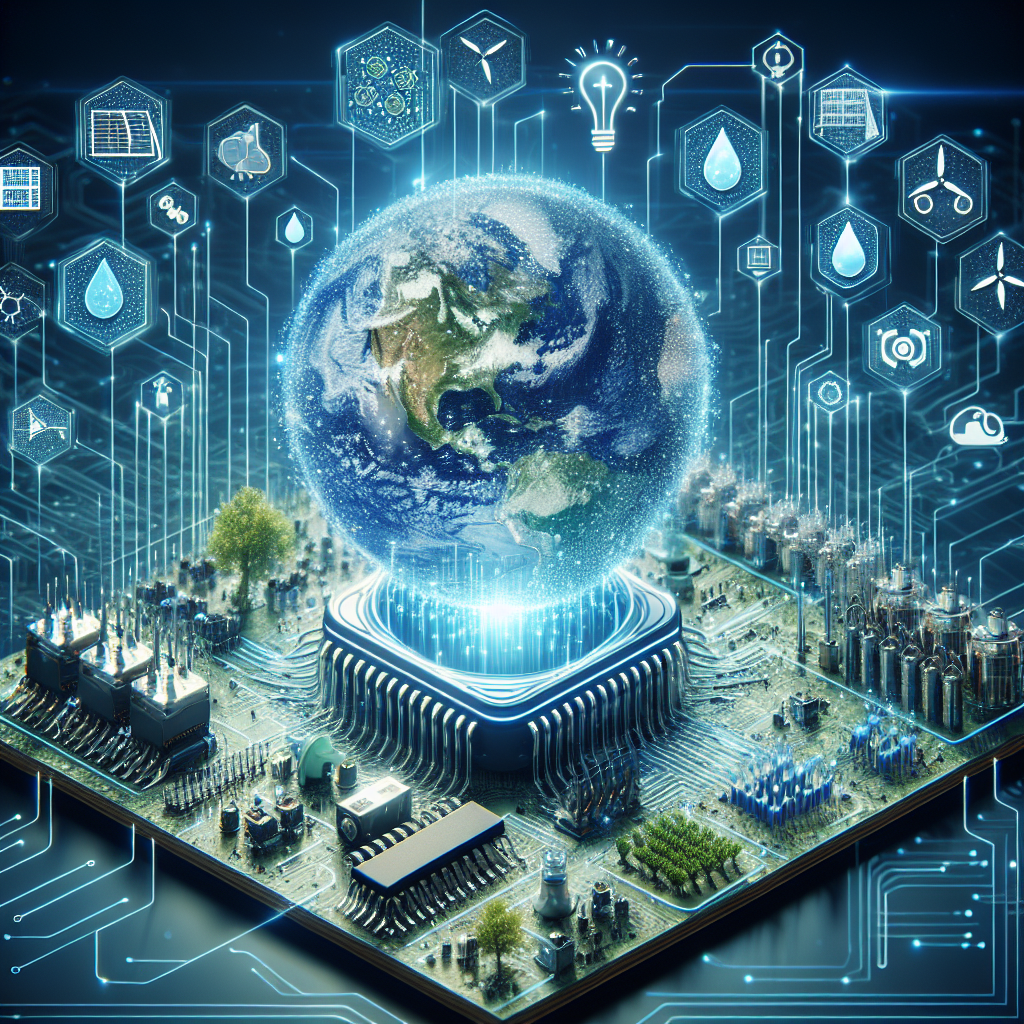Artificial intelligence (AI) has the potential to revolutionize many industries, and one area where it can make a significant impact is in sustainable water management. Water scarcity is a growing concern around the world, with an estimated 2.1 billion people lacking access to clean and safe drinking water. By harnessing the power of AI, we can improve water efficiency, reduce waste, and ensure a more sustainable future for our planet.
AI can be used in a variety of ways to improve water management practices. One of the key benefits of AI is its ability to analyze large amounts of data quickly and accurately. This can help water utilities and municipalities make better decisions about water allocation, identify leaks in the system, and predict future water demand. By using AI-powered algorithms, we can optimize water distribution networks, reduce energy consumption, and minimize water loss.
Another way AI can be used in sustainable water management is through the use of sensors and IoT devices. These devices can collect real-time data on water quality, flow rates, and usage patterns, allowing water managers to monitor and control water resources more effectively. By analyzing this data with AI algorithms, we can detect anomalies, identify potential problems, and take proactive measures to prevent water wastage.
AI can also help in water treatment processes by optimizing chemical dosing, predicting equipment failures, and improving overall efficiency. By using machine learning algorithms, we can create predictive models that can anticipate changes in water quality and adjust treatment processes accordingly. This can help reduce the amount of chemicals used in water treatment, lower energy consumption, and improve the overall quality of treated water.
In addition to improving water management practices, AI can also help in water conservation efforts. By analyzing data on water usage patterns, AI algorithms can identify opportunities for water savings and recommend conservation measures. For example, AI-powered irrigation systems can adjust watering schedules based on weather conditions, soil moisture levels, and plant needs, leading to significant water savings in agriculture.
Overall, AI has the potential to transform the way we manage and conserve water resources. By leveraging the power of AI algorithms, we can improve water efficiency, reduce waste, and ensure a sustainable future for generations to come.
FAQs:
Q: How can AI help in detecting leaks in water distribution networks?
A: AI algorithms can analyze data from sensors and IoT devices to identify anomalies in water flow rates, pressure levels, and usage patterns. By detecting these anomalies, AI can pinpoint the location of leaks in the system and alert water managers to take corrective action.
Q: Can AI help in predicting future water demand?
A: Yes, AI algorithms can analyze historical data on water consumption, population growth, and weather patterns to create predictive models for future water demand. By using these models, water utilities can better plan for future water needs and allocate resources more efficiently.
Q: How can AI improve water treatment processes?
A: AI can optimize chemical dosing, predict equipment failures, and improve overall efficiency in water treatment processes. By using machine learning algorithms, we can create predictive models that can anticipate changes in water quality and adjust treatment processes accordingly.
Q: What are some examples of AI-powered water conservation measures?
A: AI-powered irrigation systems can adjust watering schedules based on weather conditions, soil moisture levels, and plant needs, leading to significant water savings in agriculture. Additionally, AI algorithms can analyze data on water usage patterns to identify opportunities for water savings in residential and commercial settings.

